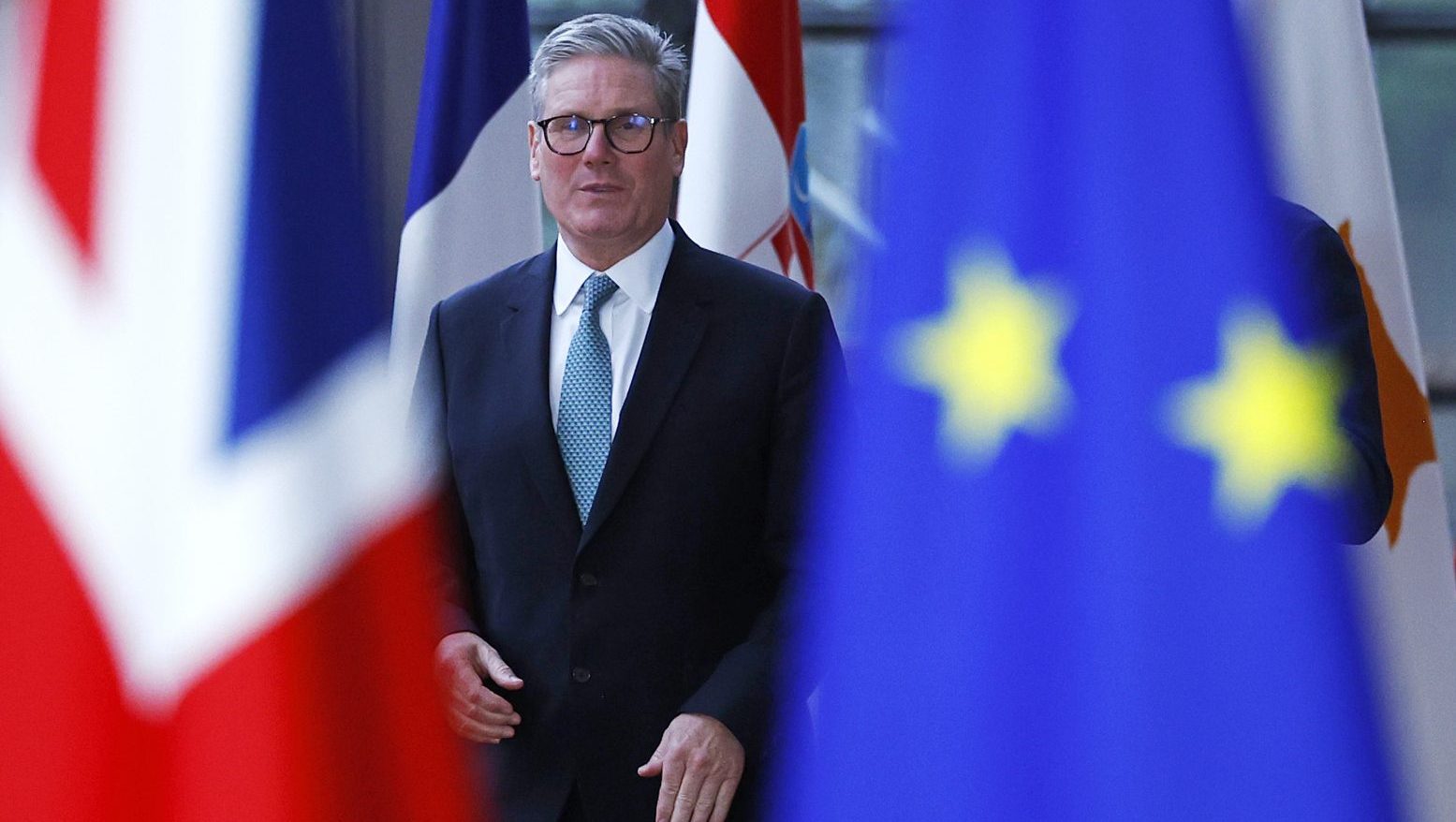In Paris recently, I described to a senior figure in France’s state administration the repeated mantra from Labour ministers of no to the single market, no to the customs union and no to freedom of movement for Brits to work, live, retire on the continent.
“Alors, c’est le triple Non to Europe,” he replied. “You won’t get very far with that with the French government.”
The EU breathed a sigh of relief when Labour won the election in July. The result was a clear repudiation of the main objective of the Tories, which has been to isolate Britain from Europe.
When Keir Starmer visited Ursula von der Leyen in Brussels, warm words were exchanged. Another meeting was put in the diary for 2025. And then Sir Keir came home to his local difficulties.
Once again, the Europeans were left puzzled – because the posture of the current government barely differs at all from that of the Brexit-era Tory prime ministers. Instead of a bold leap forward, we are back to 2016, when Theresa May first coined the slogan “Make Brexit Work”.
Every time Starmer goes to an EU capital, the media laps up the No 10 briefing that Britain wants a “reset” as the British economy reels from the impact of cutting links with the world’s biggest market. But where is the “reset”?
Starmer and his ministers talk up a new defence agreement. This was tried by Tony Blair with Chirac in the 1998 St Malo agreement and again with David Cameron’s fully fledged Lancaster House Treaty with Sarkozy in 2010. Neither made much difference. France and Britain continued to pursue their own defence policies, especially on procurement, on a national basis.
Brussels can propose some minor softening of the barriers between Britain and Europe. But even the smallest proposal, such as to allow time-limited visas for young Brits to study or work in Europe, produced a sharp reaction from ministers, who said it meant returning to freedom of movement. (But that’s not the case – visas would be required)
Meanwhile, to replace workers from nearby EU countries, last year 654,000 workers came to Britain from Nigeria, Pakistan, India, and the Philippines, often with dependants.
In a sense, Europeans fear, Labour is reverting to type. Labour prime ministers from Clement Attlee to Jim Callaghan scorned European cooperation; when he retired, Callaghan even declared that he “preferred Empire to Europe”.
Blair tried to deepen relations with Europe, and led the drive to bring Poland and other post-communist European nations into the EU. But he was locked in a permanent struggle with the anti-EU Treasury, whose ministers and special advisers briefed non-stop against Blair’s European instincts. In those days it used to be business groups that took the lead in making the case for Europe. Those trade and industry federations, traditionally closer to the Tories and now aware they are banging on a locked door, are unwilling to take any serious initiatives.
Of course it is good that Starmer is meeting with European leaders like Emmaniel Macron, Olaf Scholz and now Von der Leyen. Yet Rishi Sunak signed the Windsor Framework and even Liz Truss agreed Britain should participate in the European Political Community, Macron’s talking shop to allow non-EU states to discuss issues of common Europe-wide concern.
The question is how Britain moves to a more positive win-win relationship with our natural partners, neighbours and friends. So far, no one has an answer. Some LibDem MPs are asking the question, as are MPs from Scotland, Wales and Northern Ireland.
But Labour MPs and ministers are silent. Among the 411 Labour MPs there are many – if not an outright majority – who think Brexit was a wrong turn. But so far their lips are (in public) sealed. They do not want to make life even more difficult for the new PM.
Starmer seemed very anti-Brexit in his first years as an MP. Now he appears to have shelved his belief in European partnership in the vain hope that this will curry favour with the anti-European media.
The Italian MEP, Sandro Gozi, a former socialist minister for Europe, represents the European Parliament on Brexit questions. He told me he wants to meet Labour MPs, in order to explore how Britain can begin a new relationship with the EU.
Two of Europe’s oldest democracies, Norway and Switzerland, are not in the EU. They do not use the Euro, but have fashioned agreements that allow their citizens to work in Europe and have win-win trade deals with EU nations. Could this be a model for Britain?
And can the Labour Movement for Europe, chaired by Stella Creasy, take a lead? It has almost 130 MPs signed up and is now Labour’s largest bloc. Its voice is needed at a time when ministers seem too nervous to talk about Europe.
Many in Starmer’s cabinet were influenced by Gordon Brown’s hostility to efforts by Blair to overcome Whitehall’s euroscepticism, a relic of the Major and Thatcher eras.
There is lots of goodwill in the European Parliament and a desire among EU governments to find win-win solutions to the problem of building better ties with Britain.
But if Labour ministers stick to the Europhobe attitudes of the previous government, voters will be disillusioned. They may soon look for answers from other parties.
Denis MacShane is a former Labour minister for Europe and author of Brexiternty: The Uncertain Fate of Britain (Bloomsbury)



